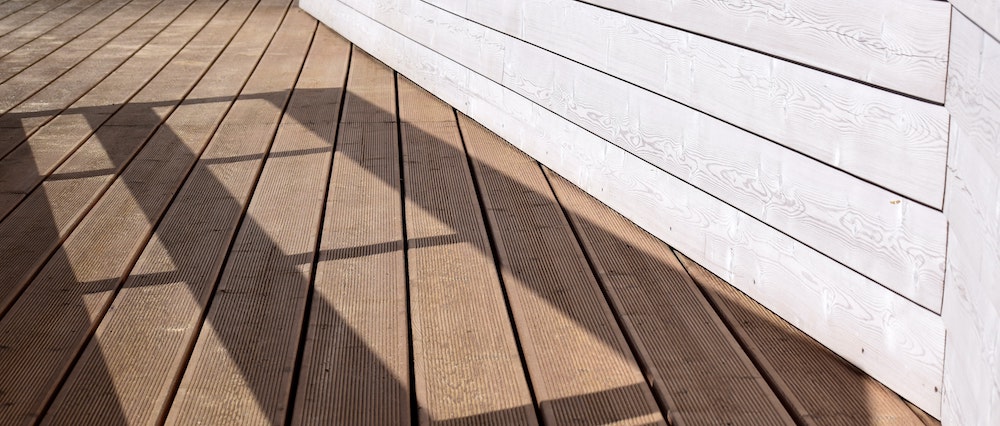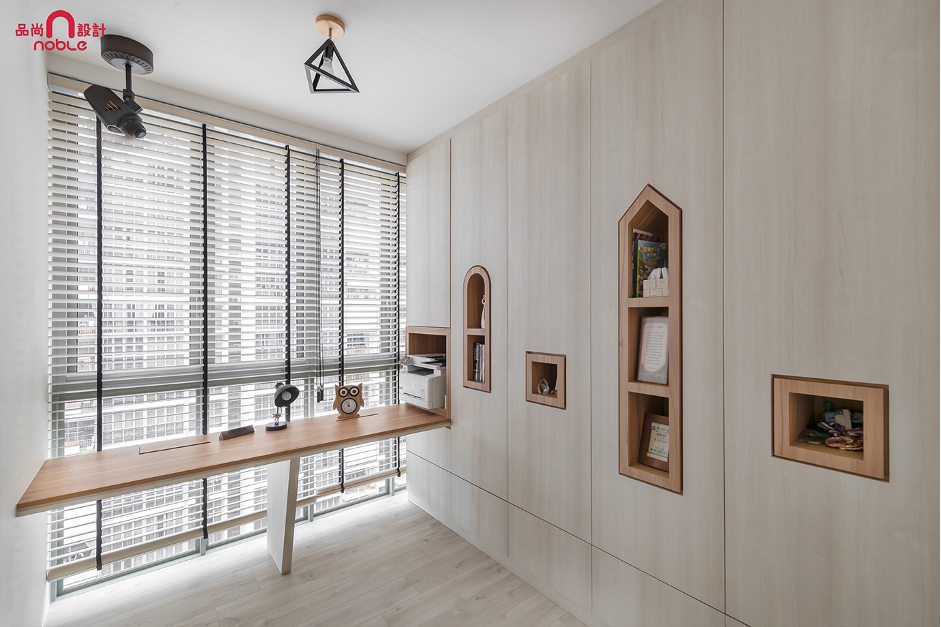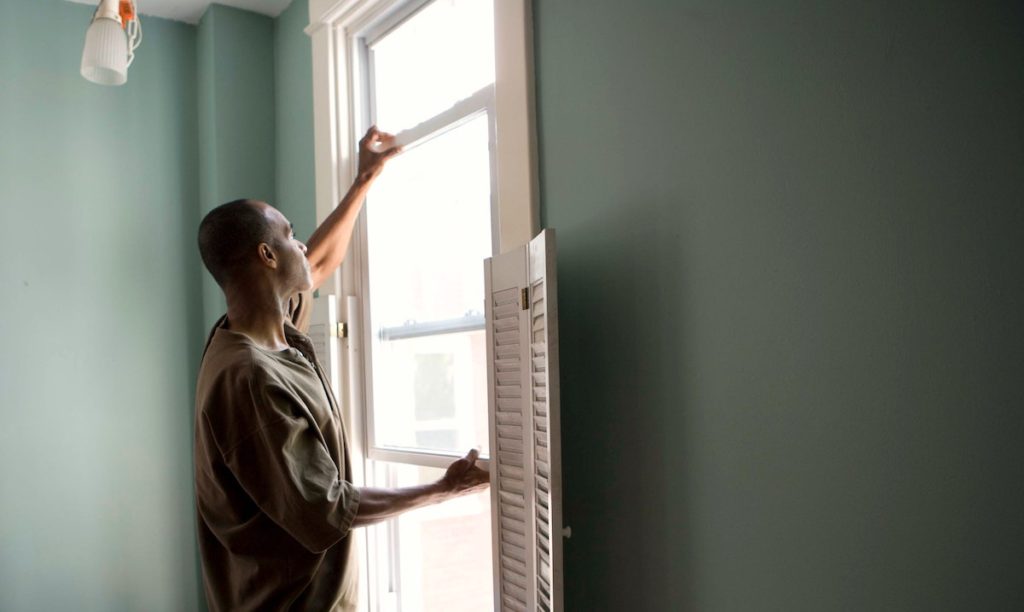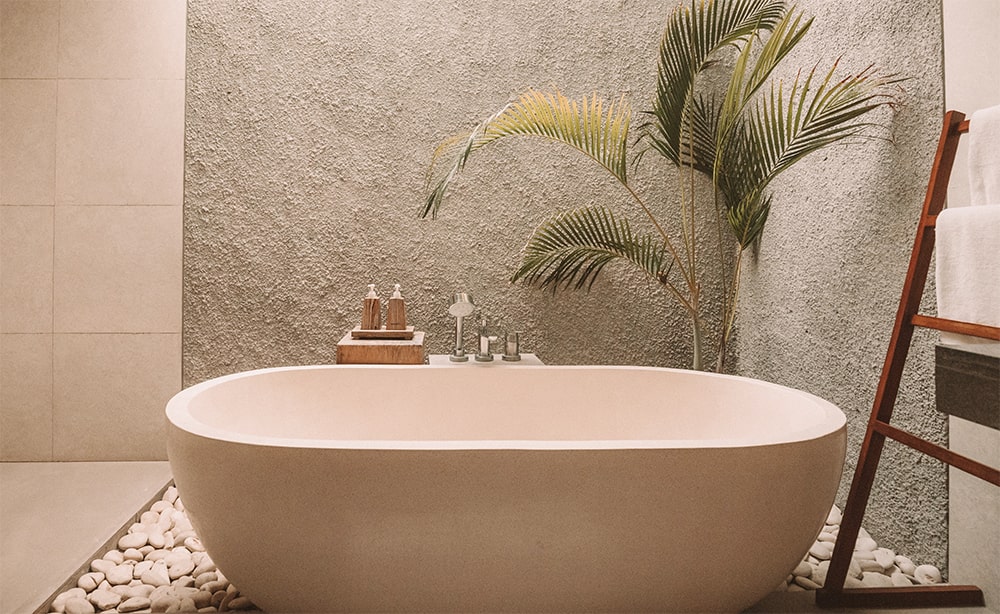
Homees provides a directory of termite control companies in Singapore. You can compare and view a list of termite control companies that can suit your home needs.
11 Best Termite Control Companies In Singapore
Companies | Services | Address | Ratings |
Homees Concierge Service | Homees Concierge Service Team - tell us what you need and we'll help get it solved. Talk to us today by giving us a call or Whatsapp us now. | 994 Bendemeer #03-04 Singapore 339943 | Average Rating: 5/5 |
Termite Specialist Pte Ltd | - Specialised Termite Control | 50 Bukit Batok Street 23, #05-30 MIDVIEW BUILDING, Singapore 659578 | Average Rating: 5/5 |
Pest Off | - Pest Control | 25 Kaki Bukit Pl, Singapore 416203 | Average Rating: 5/5 |
Absolute Pestcare Pte Ltd | - Pest Control | 192 Waterloo Street #07-07 Sky Line Building Singapore 187966 | Average Rating: 5/5 |
Plugbear Home Services | - Termite Control | 39 Woodlands Close, #06-31 Singapore 737856 | Average Rating: 5/5 |
Maximum Pest | - Pest Control | 54, Maude Road Townshend Building #02-06 Singapore 208346 | Average Rating: 5/5 |
Top Pest Control Pte Ltd | - Pest Control | 791 Jalan Bukit Merah #08-12 E-Centre@Redhill Singapore 159471 | Average Rating: 5/5 |
Aegis Pest Services | - Pest Control | 75A Killiney Road, #02-05 Singapore 239529 | |
Ridpest | - Pest Control | 1 Bukit Batok Crescent #08-41 WCEGA Plaza Singapore 658064 | Average Rating: 5/5 |
Pentapest Pte Ltd | - Pest Control | 31 Woodlands Close #04-02 Woodlands Horizon Singapore 737855 | Average Rating: 5/5 |
1 For All Pte Ltd | - Pest Control | 8 Burn Road #15-13, Trivex Building Singapore 369977 | |
WTG Pest Control | - Pest Control | 1 Scotts Road #24-10 Singapore 228208 | Average Rating: 5/5 |
Hire Termite Control Services In Singapore
View All Termite Control Companies
The Price List Of Pest Control In Singapore
Types of Pest | Estimated Price For Treatment |
Ants | $100 - $210 |
Termites | $120 - $260 |
Mosquitoes | $70 - $150 |
Bed bugs | $400 - $1,500 |
Cockroaches | $80 - $160 |
Rodents | $250 – $400 |
What is a termite?
Termites are tiny insects that are similar in size to ants. Different species may make the treatment more difficult. Indeed, knowing the types of termites, you’re dealing with is crucial to properly exterminate them. That’s why identifying their class is the first step.
Still, they are hard to spot by an untrained eye. In such cases, chances are higher that you will spot the signs of termite damage. Typically, some of the most destructive species, like warm and moist areas.
Either way, the faster you attend to the problem, the less damage they’ll cause. For best results, call a professional pest exterminator and discuss the treatment and prevention options.
What do termites look like?
As expected, lots of homeowners confuse termites for ants. Of course, both insects can damage your home. However, pest control services vary a lot. Often, a suspected termite infestation turns out to be a problem with carpenter ants or fire ants. Indeed, they look quite similar, but there are some differences in their body and shape.
For example, termites have a straight waist and antennae. Their wings are the same while ants have wings of different lengths. What’s more, some termite species like flying mites discard their wings. If you ever see discarded wings around your property, there’s probably a termite infestation in your home.
Termite control prices in Singapore
In Singapore, there are a few termite species. Usually, the most common ones are the damp wood termite, dry wood termite and subterranean termite. As expected, a termite infestation is the last problem a homeowner would want. For this reason, it’s not a good idea to neglect such a plague.
Fortunately, there are plenty of termite exterminators that provide services in Singapore. Of course, professional termite control cost depends on a wide array of factors. For example, you’d want to keep in mind things like the size of your home, the products and type of service. Moreover, the pest control company will determine the scale of the infestation and the frequency of visits in the future.
Usually, most pest control contractors perform monthly servicing for around $30. Regular servicing will ensure that you get rid of the insects. Besides, it will prevent future infestations. If you’ve recently bought an HDB flat, you can call for a pest control inspection. It may cost you anywhere between $60 and $120, but it will help you identify a termite infestation on time. Of course, the larger the location, the higher the cost.
Ultimately, you’ll have to decide between regular pesticides and green products. As you can imagine, green pest control services will cost you more, but you’ll preserve the environment. Either way, you should make sure you hire a reputable termite control company with experience in the field. That way, you’ll ensure there are no mistakes during and in between the treatments.
Questions To Ask Termite Control Professional
Hiring a pest control exterminator undoubtedly sparks up a lot of questions. As plenty of homeowners have ongoing issues with bugs, most people shy away from calling professionals. Perhaps, the main reason is insufficient knowledge.
Still, most pest control professionals will happily answer your questions. Therefore, you shouldn’t leave a termite infestation unattended. Here’s a shortlist of stuff to ask your pest control expert:
What’s your experience and training?
Since pest extermination involves a set of strict treatments, every exterminator must go through special training. Besides, pesticides are harmful, so using them requires great precision. Typically, a reputed company will be able to stand behind their work. If the company’s management or staff are reluctant to tell you about their exterminator’s training, it’s a red flag.
Do you have proper licensing and insurance?
Usually, reputable companies will have all the licenses to operate. Also, they should have all the insurances, including professional liability. In turn, they will ensure proper application methods and safety practices.
Furthermore, a professional pest control company should have no problems showing their license and insurances. Otherwise, you risk taking responsibility if something goes wrong. That’s why it’s better to be safe than sorry.
Where can I find customer reviews?
Of course, the Internet is a great advantage when looking for pest control services. You can find all pest exterminators around you in no time. Furthermore, you can check out customer reviews and feedback of your company of choice. If you have trouble finding online reviews of your company’s services, you should ask them for help.
Typically, they’ll guide you to their website comments or some type of testimonials. Also, they should have positive ratings on a few review websites. After all, you don’t want to let an exterminator of ill-reputation at home.
Do you provide written quotes? Do you honour them?
The first rule when hiring a contractor – stay away from the verbal estimate of costs. While it’s not professional, it’s a red flag for hidden fees. Simply put, a professional pest control company will give you a written estimate after a thorough inspection. That way you’ll know how much the job will cost without having to pay more than expected.
Can you identify the source of infestation?
Arguably, this question is one of the crucial factors that will determine your choice. Apparently, everyone wants to get rid of all pests that may be in their home. Also, they’ll need a competent pest exterminator to identify the source of the infestation. Ultimately, the exterminator will be able to apply proper treatment.
Also, he will know whether other pests are likely to be in the area. If you notice that your exterminator is merely guessing the source of the infestation, ask them to investigate further. On a side note, you should simply seek a second opinion. After all, you’re looking for a long-lasting solution.
Do you use non-toxic products?
Also, let’s not forget about our health as well as our pets and the environment. As you can imagine, pest control products are hazardous as they contain harmful chemicals. That’s why it’s normal for homeowners to ask for a list of the products that an exterminator plans to use.
Usually, pest exterminator should be able to tell you about the ingredients that they use during the process. What’s more, they should let you know if you’ll need to leave your home during the treatment. Ultimately, you’d want to hire a pest exterminator that uses non-toxic products. However, prepare yourself to pay extra for this luxury.
Will you monitor the property after the treatment?
Sometimes, things may not go as expected. No matter the type of insect, you will usually need more than one visit from a pest exterminator. Moreover, each treatment will last for a different period. Let’s not forget about the differences in climate, type of property and other factors that may affect its efficiency. That’s why you should ask if your pest control company offers a warranty.
Arguably, such an agreement will relieve you of the hardship of paying extra bucks to another pest control company. If you need assistance, your pest control company will stay in touch with you. Most of the time, they’ll check for other pests while treating the present issue. Furthermore, they may offer you tips on how to prevent a reinfestation. Best of all, they may offer monthly or yearly inspection.
What termite species are common for Singapore?
Knowing that there are more than 1300 types of termites in the world indeed sounds terrifying. Luckily, not every species infests homes. Still, you should be aware of three types of termites that are common for Singaporean families.
The Subterranean termites, Drywood termites and Dampwood termites can cause enormous damage to your HDB flat or condominium. Of course, landed properties have the highest risk of termite infestation. Therefore, you should identify the problem on time and call a professional before it’s too late. Here’s more about these three pests:
Subterranean Termites
Arguably, Subterranean termites are the most common termite species in Singapore. These pests come from the soil and go above ground in search of wood and cellulose materials. Typically, they feed on materials like paper cupboard and moist wood. That’s why water leakages or waterproofing issues in your house often attract these pests.
Drywood termites
Drywood termites are another dangerous termite species. While they are the second most common type of termites in Singapore, they’re even harder to eradicate. Usually, they can fly in your home during the swarming season. If you notice discarded wings anywhere near wooden skirting, door frames or wardrobes, there’s probably a termite infestation.
Also, you can find them in already-infested antique or second-hand furniture. Untreated wood is prone to termite infestation. That’s why you should ask your renovation contractor for treated timber. Besides, a water-resistant one will also do the trick.
Dampwood Termites
While the Dampwood termite may not cause the same trouble, it’s still problematic in landed properties. As they feed on tree shrubs and rotten wood, they may create some minor damage to adjacent construction. Fortunately, you may prevent such infestations with proper anti-termite treatment.
What are the signs that you have termites in your home?
Usually, we don’t see there’s a termite infestation in our homes until it’s too late. Of course, such mistakes often cost us hundreds and even thousands of dollars. Worst of all, home insurance won’t cover such damage.
That’s why it’s best to identify a termite infestation on time. Even if an untrained eye can do this by looking for the right signs. Ultimately, you’ll know when to call a professional exterminator for a more thorough inspection.
Blisters
If you notice blisters in your wooden floor, there are likely bugs underneath. Typically, Subterranean termites can eat up the subfloor, which will make it appear as if it has water damage.
Hollowed wood
Moreover, you can find signs of similar damage below and behind your walls, too. Termites chew through wood in search of cellulose. That way, they leave behind long grooves, which weaken the wood and create structural damage. Typically, you can identify hollowed wood by its honeycomb interior and empty sound.
Discarded wings
Usually, homeowners confuse termites with flying ants. However, unlike ants, termites discard their wings. This is when they swarm out of their nest to mate and find a place to colonise. The difference between termite wings and ant wings is that the former are all the same size.
Mud tubes
Apart from the hollowed wood and blisters, you may also notice mud tubes. They are usually pencil-sized, and you can find them wherever the ground meets your house. Typically, Subterranean mites start eating up the house structure as they forage up to their food source. As they require a specific temperature and humidity level to survive, they create tunnels to block out cold and dry air. Consequently, they turn your home into a safe environment.
Droppings
Last but not least, some species, like the Drywood termites, nest inside of wood. Just like any other living species, they leave droppings after they munch on wood. To keep their galleries clean, they create kick-out holes. In other words, you may see mounds of pellets that resemble coffee grounds. In such cases, you clearly have uninvited guests in your home.
Installing insect screens can help prevent termites and other pests from entering your home in the first place.
How to get rid of termites?
If you want to get rid of a termite infestation, you’ll need a lot of patience. Fighting off these pesky critters is not an easy job, and you may hire a professional pest control company. Of course, the DIY approach will cost you less, but it may not be as effective. Still, there are a few methods to try before you hesitate and call a professional:
Poison bait stations
As the name suggests, this approach consists of installing unique baits around the foundation of your home. Each station has a hollow plastic tube with a poison-laced wooden stick. As it attracts foraging mites, they usually bring the toxic wood fibres back to their nest. Consequently, they may wipe out the entire colony. Some high-tech models even feature pop-up indicators.
Liquid poison barriers
While it may require more effort, liquid poison barriers are much more successful in killing termites both outdoors and indoors. Generally, the process involves spraying a continuous band of liquid poison around the foundation. When the mites come in contact with the contaminated liquid, they will carry it back to the colony and exterminate it.
For more long-lasting results, some homeowners dig a shallow trench around the perimeter of the house foundation. Usually, trench-applied poison can kill termites for several years. Still, some experts advise homeowners to reapply the poisonous coat every two years or so.
Boric Acid
In some sense, boric acid is a less toxic way to kill off termites. The acid is actually a fine powder that you can spray directly onto damaged wood, cracks, crevices or holes.
Typically, the chemical attacks the termites’ digestive systems and kills them within a few days. While it’s not as strong as bait stations or liquid poison, boric acid is less noxious and more affordable. Besides, it’s easier to apply – just bear in mind that rainfall may reduce its effectiveness.
Diatomaceous Earth
Perhaps, diatomaceous earth is an environmentally-friendly method of dealing with termite infestations. This organic powder consists of fossilised remains of tiny aquatic organisms. You can apply it in the same manner as boric acid.
While it may feel like a fine powder, diatomaceous earth has super-sharp grains. They slice and dice through a termite’s exoskeleton. Of course, it’s not so effective and probably won’t be effective against a massive infestation. Still, this approach is effective at killing off small colonies.
Direct chemical treatment
As expected, poisoned bait stations and liquid barrier treatment are effective methods for outdoor use. However, they aren’t suitable for indoor use as you can’t use them directly on the crevices and holes.
Luckily, there are foam chemicals that will expand after leaving the can. Most of these products are odourless and will last up to a month after spraying them. As it grows, the foam reaches the places where termites might be hiding.
Beneficial Nematodes
Another natural method of termite removal is beneficial nematodes. If you have a minor issue or you’re looking for prevention, they are an effective solution. These microscopic roundworms will feed on harmful insects such as these bugs. What’s more, they are 100% safe and don’t harm humans. Of course, some parasitic nematodes can infect humans, but this is not one of them.
Usually, they invade the body of a termite or another harmful insect and begin feeding on it. After the host dies, the nematodes move on to their next target. Unfortunately, this approach may be useful only outside and when dealing with smaller colonies.
Can I get rid of termites without calling pest control?
In some cases, a homeowner may manage to deal with a termite infestation alone. However, getting rid of termites without calling a professional pest control company is a bad idea. While it may not look serious, such an issue can put your entire home in danger.
Therefore, it’s best to rely on a professional pest control company. That way, you’ll get a precise estimate of the initial damage and the possible forms of treatment. What’s more, bear in mind that termite control needs to be ongoing.
Perhaps, a professional pest exterminator will suggest regular preventative treatment. As a result, he will ensure that you keep termites out of your home and off your property.
Related Articles
We’re here to improve your home
Speak to hundreds of reliable pros, view their gallery, inspirations, and know the best prices with our resources.
Have full control over your home improvement projects with Homees.





